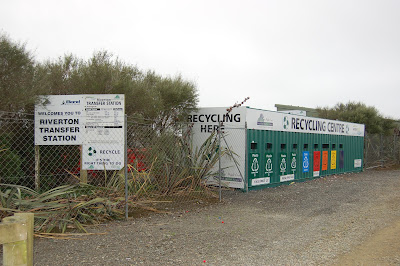RIVERTON – A new scrap-metal recycling plant has started processing test samples and plans to ramp up its production capacity in the coming months.
S.I.C. Recycling Inc., a subsidiary of Assumption-based Sloan Implement Co., started the plant just south of Interstate 72 earlier this year. The project got funding of more than $900,000 in financial incentives from the state.
“Things have been going great,” general manager Brady Bird said. “We haven’t had any significant hiccups.”
The plant will eventually process scrap metals which don’t contain iron, such as copper-aluminum radiators and copper wiring, and may expand to other items including old computers and other electronic waste, Bird said.
“The typical process is to run a couple loads to get an understanding for how the machinery’s working, and then you make some tweaks,” Bird said.
S.I.C. already has hired office workers, manufacturing personnel, a maintenance supervisor and “a handful of operators,” he said.
While S.I.C. isn’t hiring at present, the company always accepts applications and anticipates more openings in the coming few months.
According to officials, they expect the operation to generate 25 new jobs, but Bird said the final number will depend on several economic factors.
“It’s all based on what’s going on in the scrap industry and the commodity market,” Bird said. “If construction picks back up and the market is hot, then we’ve got significantly more volume coming through than we would otherwise.”
As per Village President Bob Todd, the new business will be a boon for Riverton.
“We’re excited and ready to get them going,” Todd said.
Besides generating jobs and property tax revenue, local officials hope S.I.C. will also result in business growth around the I-72 interchange at Overpass Road, he said. That area was annexed as part of the process of bringing S.I.C. to town.
A full-service truck stop or a motel will be good fit for the area, Todd said.
The plant also may lead to lower electricity bills for residents.
The village’s peak demand for energy is currently at night, meaning customers pay more for the power they use when they get home from work, Todd said.
Once the plant reaches its full capacity, the amount of energy it uses should shift peak demand – and the accompanying higher rates – to the daytime hours, he said.
S.I.C. Recycling Inc., a subsidiary of Assumption-based Sloan Implement Co., started the plant just south of Interstate 72 earlier this year. The project got funding of more than $900,000 in financial incentives from the state.
“Things have been going great,” general manager Brady Bird said. “We haven’t had any significant hiccups.”
The plant will eventually process scrap metals which don’t contain iron, such as copper-aluminum radiators and copper wiring, and may expand to other items including old computers and other electronic waste, Bird said.
“The typical process is to run a couple loads to get an understanding for how the machinery’s working, and then you make some tweaks,” Bird said.
S.I.C. already has hired office workers, manufacturing personnel, a maintenance supervisor and “a handful of operators,” he said.
While S.I.C. isn’t hiring at present, the company always accepts applications and anticipates more openings in the coming few months.
According to officials, they expect the operation to generate 25 new jobs, but Bird said the final number will depend on several economic factors.
“It’s all based on what’s going on in the scrap industry and the commodity market,” Bird said. “If construction picks back up and the market is hot, then we’ve got significantly more volume coming through than we would otherwise.”
As per Village President Bob Todd, the new business will be a boon for Riverton.
“We’re excited and ready to get them going,” Todd said.
Besides generating jobs and property tax revenue, local officials hope S.I.C. will also result in business growth around the I-72 interchange at Overpass Road, he said. That area was annexed as part of the process of bringing S.I.C. to town.
A full-service truck stop or a motel will be good fit for the area, Todd said.
The plant also may lead to lower electricity bills for residents.
The village’s peak demand for energy is currently at night, meaning customers pay more for the power they use when they get home from work, Todd said.
Once the plant reaches its full capacity, the amount of energy it uses should shift peak demand – and the accompanying higher rates – to the daytime hours, he said.
